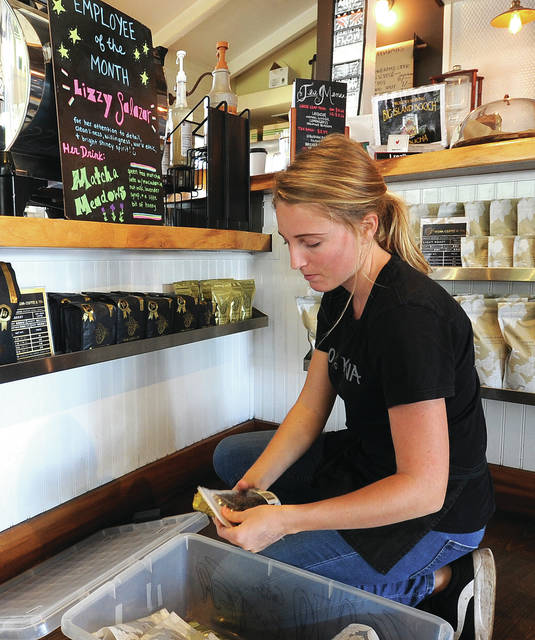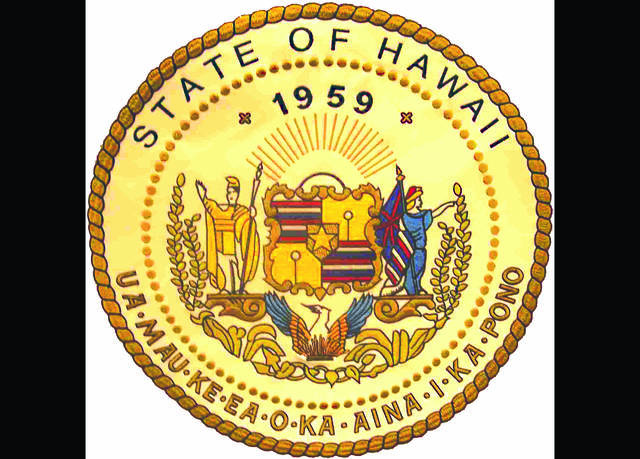HILO — Malia Bolton Hind, owner of Kona Coffee and Tea Company in the Kona Coast Shopping Center, knows a minimum wage increase would hit her business’s bottom line.
“If this passes I’m going to take a hit,” she said of the proposal to raise the rate now circulating through the state Legislature. “Everything is going up, rent, utilities, etc. I’m going to have to pass the costs along to my customers, and I hope they understand.”
Despite that, she said she supports an increase.
“The reality is, the cost of living is so high here, employees need to be able to support their families, which in turn supports the community,” she said.
A bill that would increase the state minimum wage to $15 an hour received wide support after passing first reading last month.
If passed, House Bill 1191 would incrementally raise the minimum wage for employees not receiving health insurance through their employers by $1 a year for five years, capping out at $15 in 2024.
Employees who do receive health insurance through their employers would see their wages increase by $0.50 each year until 2024, with a cap at $12.50.
The current minimum wage in Hawaii was established by a 2015 bill which also incrementally raised the minimum wage each year from $7.25 in 2015 to the current wage of $10.10, which was reached in 2018 as that bill’s final stage.
Hawaii’s minimum wage is one of the highest in the country, with the highest being the $14 per hour offered in the District of Columbia, followed by $12 per hour in California, Massachusetts and Washington.
HB 1191 is only one of dozens of minimum wage-related bills to be introduced this legislative session, many of which call for a similar increase, whether that increase be incremental or all at once.
“There will definitely be a minimum wage increase this year,” said Rep. Richard Creagan, who co-introduced HB 1911. “The only question is how much.”
At a hearing regarding HB 1191 on Jan. 31, public testimony was widely in favor of the measure, with most of the dissent coming from business owners and associations.
While the chambers of commerce of the State of Hawaii and Maui both testified against the bill — on the grounds that a minimum wage is offered as a starting wage, not a living wage, whose increase would place undue strain on businesses — the Hawaii County Chamber of Commerce did not testify one way or another, unlike with previous wage bills.
“All indication is that there’s at least one (minimum wage bill) that will pass,” said Gordon Takaki, president of the Hawaii County Chamber of Commerce. “I think it would be counterproductive to just shut down completely. We need to figure out what people are looking at.”
Takaki acknowledged that a minimum wage increase has been unpalatable for the chamber in the past, but said that the possibility of staging the increase in increments — as HB 1191 does — might make it more acceptable among the chamber’s members.
However, Takaki said he was concerned about the possibility that yet another minimum wage increase might be proposed immediately after the completion of the prior one, in the same way that HB 1191 was introduced only a year after the final increase from 2018.
Regardless of how a minimum wage increase is implemented, Takaki said it will have difficult effects on businesses. Increasing the pay of entry-level jobs will require businesses to increase the pay of other jobs to avoid paying skilled labor close or equal to unskilled labor.
However, Creagan said the state’s work shortage puts similar strain on employers. Creagan said some business owners have told him they have had to offer wages close to $15 an hour just to garner interest.
“There is evidence that there isn’t a draconian effect on businesses, and some that businesses actually do better with higher wages,” Creagan said.
Some of the minimum wage bills this session would provide relief to businesses struggling with wage increases. In particular, House Bill 1022 would establish a tax credit for small businesses during the wage increase, claiming $1 of tax credit for every minimum wage hour paid per year, up to $50,000.
Takaki said he would need to know more about the tax credit plan before he could endorse it.
However, Creagan said a wage increase will happen regardless of endorsements.
“It’s inevitable this year,” Creagan said. “It reflects the economic realities of employers and employees.”









The fact that the cost of living in Hawaii continues to escalate is a direct result of the “legal mafia” tax and spenders.
Now, they will extract more from companies so the people will not realize that any increase in their pay will be siphoned from the worker’s hand to the government one with higher sales taxes, property taxes, gas taxes, income taxes, etc.
Nothing but a slight of hand magic trick, all in the name of “helping the hard working folks”.
How does being unskilled deserve mo money? The service in most places I frequent is terrible, why does this warrant mo money? Most of these people can afford smart phones, fancy cars, maybe they should cut back on some of this stuff like I had to to survive until I had a skill to make mo money(.Y.)